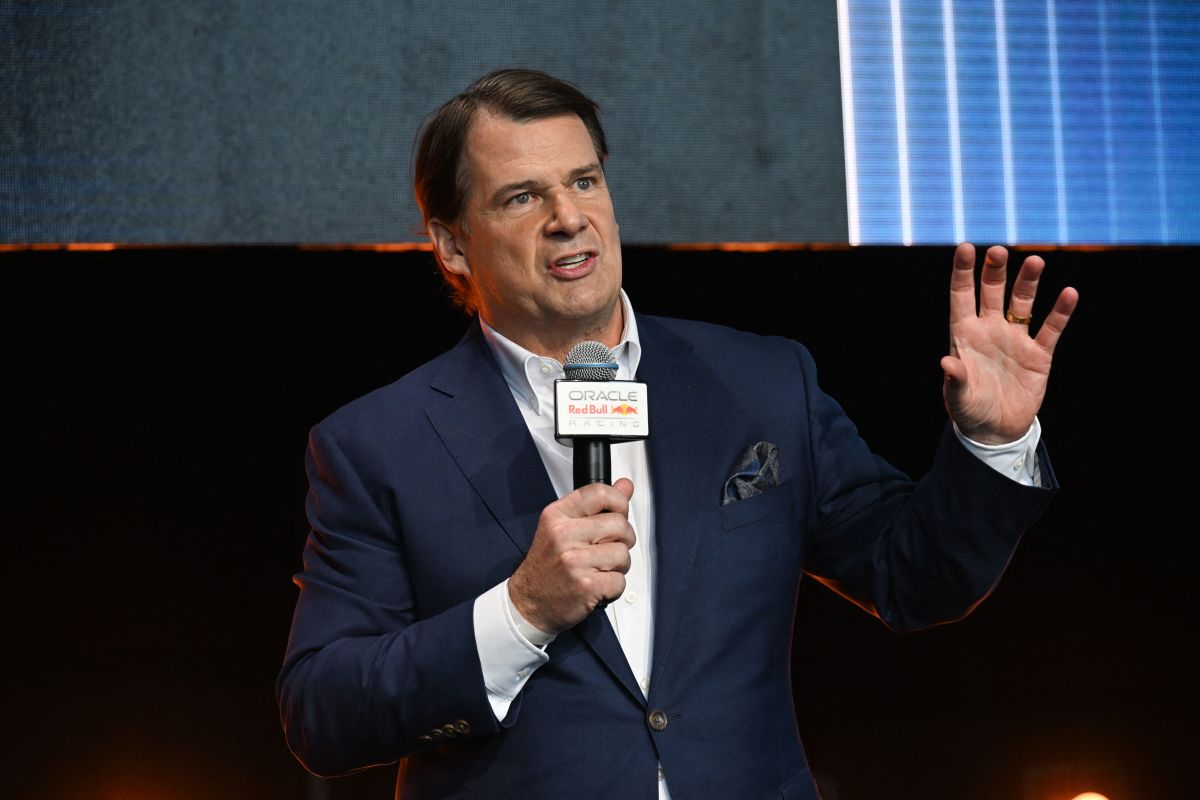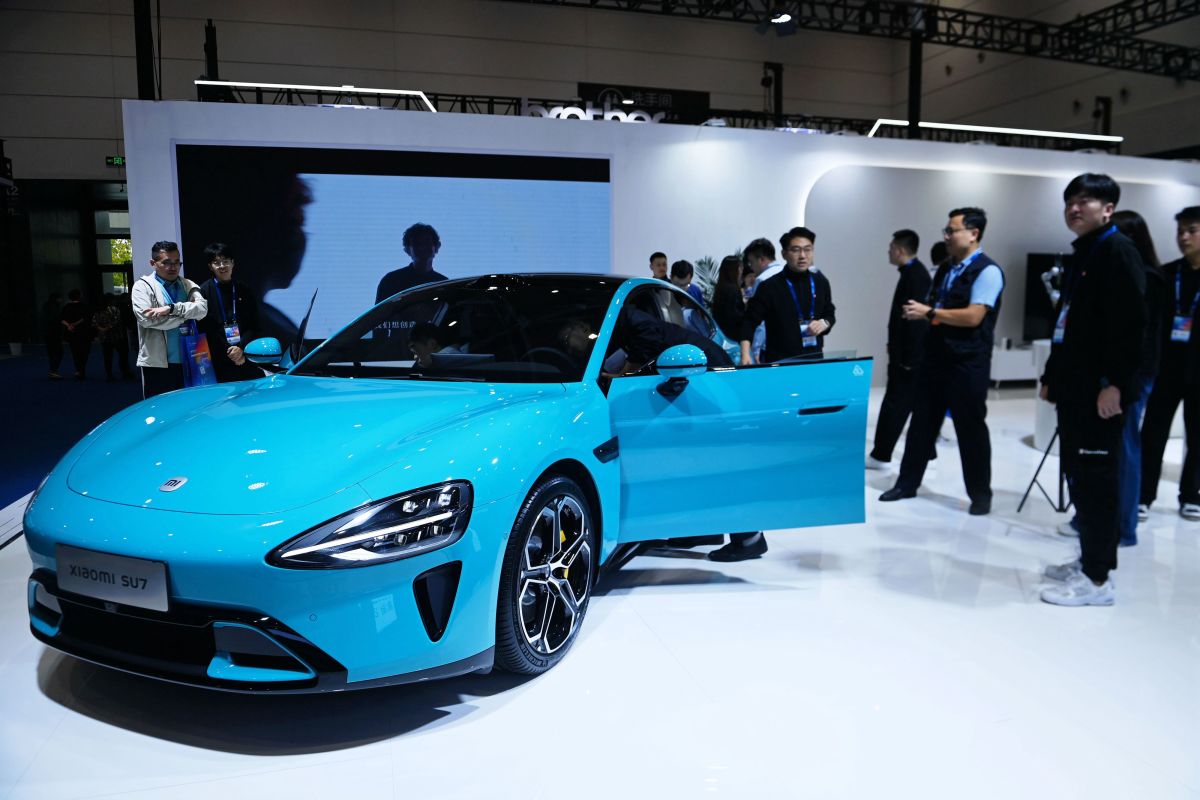
In a story for the Wall Street Journal last month profiling Ford (F) CEO Jim Farley, the Blue Oval figurehead recounted a story that motivated his current aggressive electric vehicle game plan involving a team of California-based engineers he dubs the company's "Skunk Works."
During a trip to China in 2023, he and Ford CFO John Lawler got a taste of its Chinese contemporaries when they visited Ford's partner in China, Changan Automotive.
💰💸 Don’t miss the move: SIGN UP for TheStreet’s FREE Daily newsletter 💰💸
According to the Journal, the duo test-drove an electric SUV made by Changan, the conclusion of which prompted the executives to sit "silently, stunned at the progress Changan had made."
“Jim, this is nothing like before,” Lawler reported telling Farley after the test drive to the Journal. “These guys are ahead of us.”
Ford CEO's act of betrayal
Related: Ford CEO says he's sick and tired of making 'boring' cars
Despite his characterization of Chinese electric OEMs as an "existential threat" to its Western contemporaries, Jim Farley admitted something that can sound like a betrayal to loyal, patriotic American car enthusiasts.
During a recent appearance on the Fully Charged Show podcast, the Ford CEO admitted that he has not only been driving the competition but also enjoying every minute of it.
Around 21 minutes into the podcast, Farley began talking about Xiaomi, the consumer electronics brand that recently had a hit with its foray into EVs with the best-selling SU7 sedan. To the surprise of the host, Robert Llewellyn, Farley noted that it isn't unusual for electronics companies to make cars.
"In the West, our cell phone companies are not into cars; they don't have car companies," Farley explained, as the host listened in surprise. "But in China, both Huawei and Xiaomi, the two biggest cell phone companies, are inside of every vehicle that is made."

The Ford CEO then described Xiaomi as "an industry juggernaut," noting that the company is able to sell tens of thousands of SU7s per month and has accumulated a six-month waiting list. However, one of these 'satisfied customers' is Mr. Jim Farley himself.
Although the car isn't officially for sale in the United States, Ford shipped one stateside for research and development. As far as Farley's testimony goes, he seems to be getting anecdotal experiences that go beyond traditional benchmark testing.
“I don’t like talking about the competition so much, but I drive the Xiaomi,” Farley confessed. “We flew one from Shanghai to Chicago, and I’ve been driving it for six months now, and I don’t want to give it up.”
More Business of EVs:
- A ridiculous Tesla Supercharging flaw is making EV owners hostile
- Study: EV charging stations have a secret built-in business benefit
- Mercedes latest tech is ahead of Tesla in one key area
Jim Farley's [automotive] redemption story
After admitting his spat with Xiaomi and briefly discussing the growth of then-obscure Chinese brands like BYD (BYDDY) , Farley revealed a more emotional side of himself to podcast host Robert Llewellyn to explain the motive behind his current EV strategy for Ford. He admitted that the automaker "looked the other way" when it came to Chinese brands.
Farley takes the rise of Chinese brands like BYD and Xiaomi personally and for a good reason.
He recalled his 20-year stint at Toyota, joining when the now-sales juggernaut had just "500 people at the company." He saw it evolve to the point that it affected his relationship with his family.
"I worked there for 20 years. My family was not happy; they wouldn't talk to me here in Detroit because they were ashamed that I worked [at Toyota]," Farley said. "It was a huge social cost in the midwest of the U.S. for the success of Toyota. So many jobs were lost, including many people in my family."
"I can't un-learn that as a young man. I can't unlearn the fact that the Detroit Three never really had a plan [to tackle Japanese automakers] and [Ford] is not gonna miss this one."
Related: Ford CEO's haunting visit to China triggered its radical EV shift
Farley went on to explain that his personal story inspired him and Chairman Bill Ford to approach the Chinese competition "from scratch" with the California-based "Skunk Works" team. This team comprises handpicked individuals from Tesla, Rivian, Lucid, and Apple who can operate away from the scrutiny and corporate bureaucracy at Ford's Dearborn HQ.
He likened the product's development to that of the SR-71 Blackbird, a spy plane that still holds the air speed record. He felt that by taking such a drastic approach, Ford wouldn't have to bow to its competition in any way, shape, or form.
"I felt like, the institution of Ford would have a really tough time competing with BYD, so we needed a ground-up team with the similar approaches of Kelley Johnson's SR-71 'Skunk Works,'" Farley said.
"My [Ford] badge doesn't even work there; I can't even get in the building. That's how extreme [...] of a different approach we needed to compete against BYD because the traditional industrial company [...] are just adopting Chinese platforms."
Ford will release its release 3Q 2024 earnings at 4:05 p.m. ET on Monday, Oct. 28, with an earnings call to follow at 5 p.m.
Ford Motor Company, which trades under the symbol F on the New York Stock Exchange, closed trading down 0.45% to $11.06.
Related: Veteran fund manager sees world of pain coming for stocks







